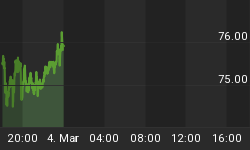So the Fed decides not to raise rates, and global stocks tank. Then they trot out their in-house PR staffer Jim Bullard to proclaim that rates will go up next month -- and US stocks rally. What's going on here?
Traditionally -- that is, since the world took on so much debt that central banks became, well, central to both the real economy and the financial markets -- investors have wanted lower rates and easier money, and have sold when those things were threatened. But now it's the opposite; "dovish" is apparently bad and "hawkish" or "nuanced" is good. In fact here's a clip of Bullard saying that the Fed "can't permanently raise stock prices" -- to which investors responded by buying stocks.
Later in the day, Atlanta Fed president Dennis Lockhart announced that:
1) He was comfortable with the Fed not raising rates in September.
2) But he intends to vote for higher rates next time around.
It's hard to overstate the strangeness of this new situation. What, for instance, is supposed to happen between September -- when not raising rates is reasonable and prudent -- and October or November, when raising rates will be necessary? Is the US suddenly going to lurch into a wage-push inflation spiral? Or will the multiple crises now roiling the rest of the world simmer down simultaneously?
It's actually neither. The Fed just sends its governors out to say whatever the markets seem to want to hear. If something has made stock prices fall, the governors just say the opposite. That's literally as deep as the analysis goes.
As for the Fed's apparent paralysis, that's an inevitable result of meeting every crisis with easy money and lower interest rates. Banks, corporations and individuals around the world have been seduced by this into loading up on various kinds of cheap, usually short-term credit, and now whole categories of debt are blowing up. Emerging market dollar carry trade loans, energy junk bonds and (soon) student loans, car mortgages and various kinds of derivatives are all bombs with lit fuses.
In this kind of world it's not clear what will cause the next crisis. Higher rates might blow up the dollar carry trade; lower or even stable rates might hobble money center bank prop trading desks and bankrupt some major hedge funds.
The Fed can't know which door has the tiger, so it's hesitating. But hesitation is seen as weakness, so it has to promise to (someday soon!) do what it's afraid to do today.
Unfortunately, the odds of October or November being more tranquil than today are pretty slim. Consider:
Hedge funds giving up on Abenomics trade
UN warns European unity at risk as borders close to refugees
US existing home sales fall more than expected
US Syria strategy officially unravels: Kerry admits timetable for Assad exit is completely unknown
How to end the boom and bust: make cash illegal
"US profit growth has never been this weak outside of a recession"















